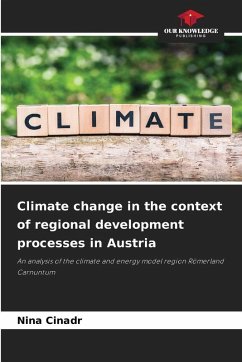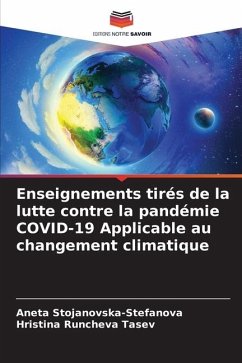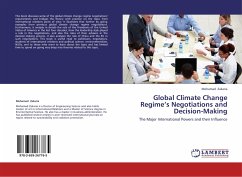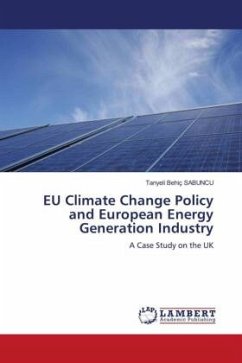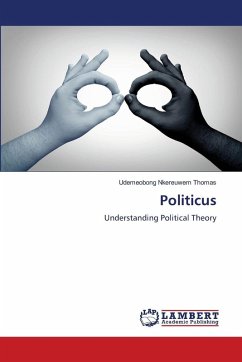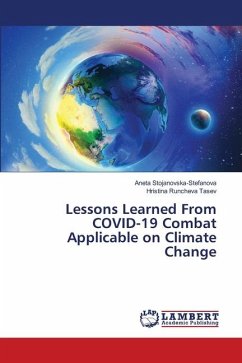
Lessons Learned From COVID-19 Combat Applicable on Climate Change
Versandkostenfrei!
Versandfertig in 6-10 Tagen
29,99 €
inkl. MwSt.

PAYBACK Punkte
15 °P sammeln!
The Covid-19 pandemic triggered a global medical emergency in March 2020, highlighting that it is not solely a concern for healthcare systems but also a challenge affecting every segment of society. The international scientific community suggests that pandemics may occur more frequently with shorter intervals in the future. Consequently, prevention and international cooperation are not mere options; they are absolute necessities. The urgency and speed of action are as crucial as the need to mobilize resources on a significant scale. This book aims to analyze the relationship between the Covid-...
The Covid-19 pandemic triggered a global medical emergency in March 2020, highlighting that it is not solely a concern for healthcare systems but also a challenge affecting every segment of society. The international scientific community suggests that pandemics may occur more frequently with shorter intervals in the future. Consequently, prevention and international cooperation are not mere options; they are absolute necessities. The urgency and speed of action are as crucial as the need to mobilize resources on a significant scale. This book aims to analyze the relationship between the Covid-19 pandemic and climate change. Specifically, it explores the degree of impact of Covid-19 on climate change and examines the possibilities of response by competent authorities through appropriate policies to address climate change. These insights are drawn from the lessons learned during the first year of dealing with the pandemic.






